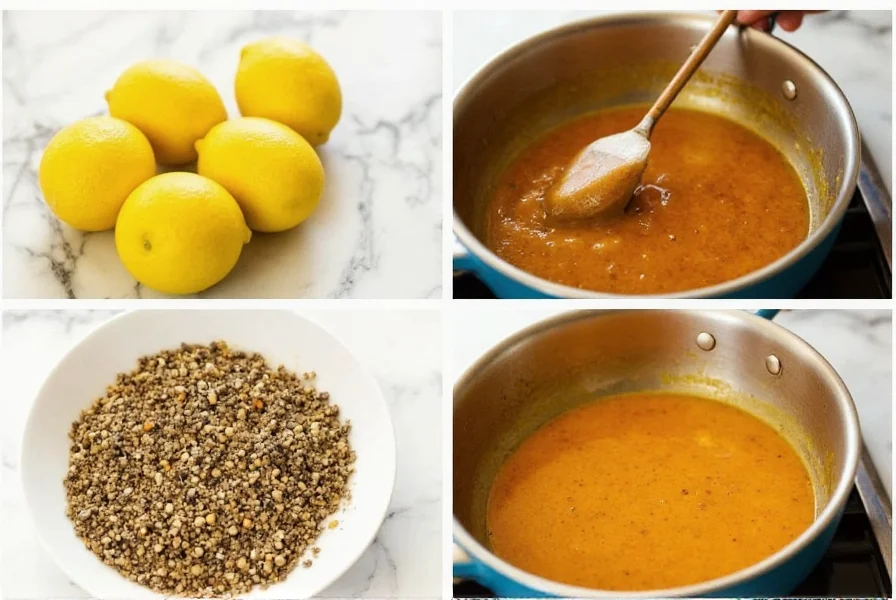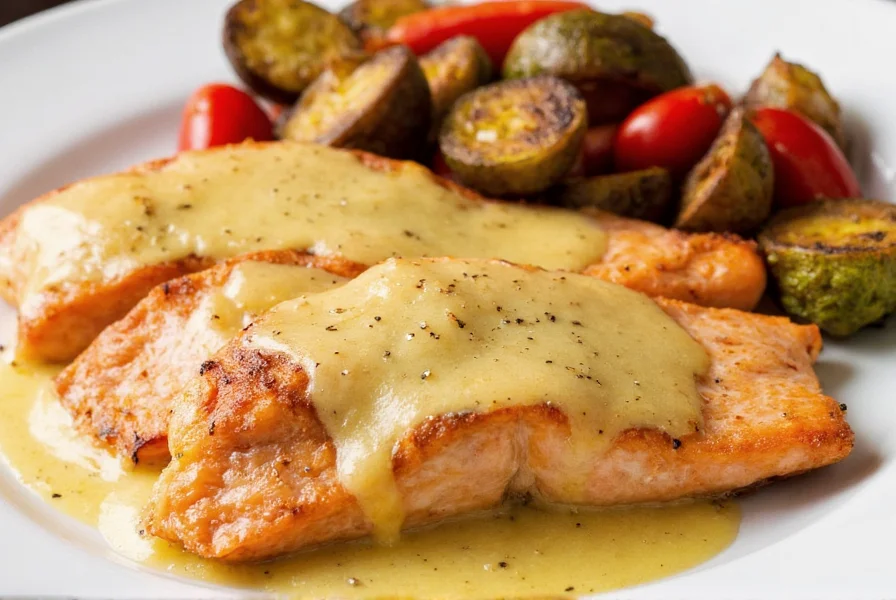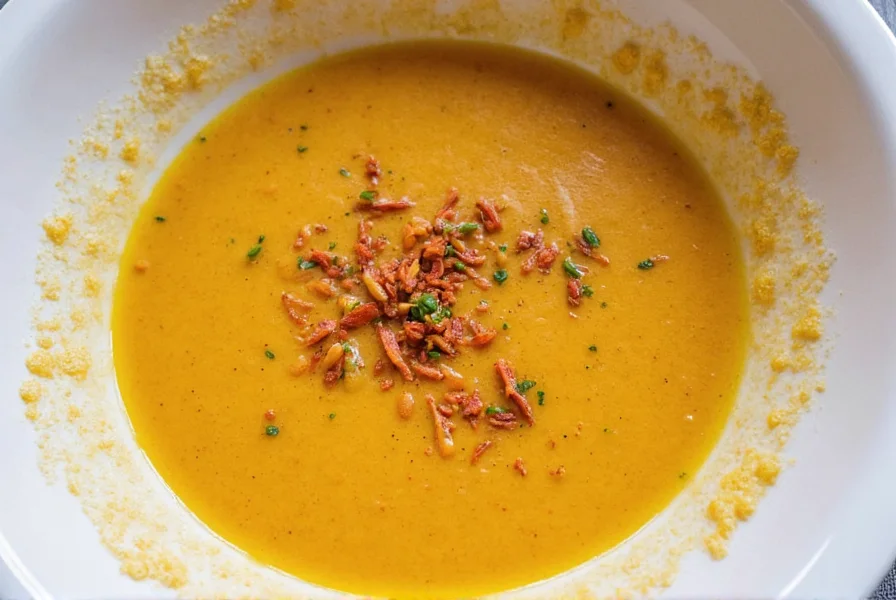Lemon pepper sauce has become a staple in modern kitchens for good reason. This simple yet sophisticated condiment balances citrus brightness with bold pepper notes, creating a flavor profile that elevates ordinary dishes to restaurant-quality meals. Whether you're preparing a quick weeknight dinner or hosting a special occasion, understanding how to make and use this sauce properly can transform your cooking.
The Essential Components of Lemon Pepper Sauce
Creating the perfect lemon pepper sauce requires understanding its fundamental elements. The magic happens when these components work in harmony:
| Ingredient | Function | Recommended Quantity |
|---|---|---|
| Fresh lemon juice | Provides bright acidity | 3-4 tablespoons |
| Lemon zest | Intensifies citrus flavor | 1-2 teaspoons |
| Freshly cracked pepper | Delivers complex heat | 1-2 teaspoons |
| Butter or olive oil | Creates emulsion and richness | 2-4 tablespoons |
| Garlic (optional) | Adds depth and complexity | 1-2 cloves |
The quality of ingredients directly impacts your final sauce. Always use fresh lemons rather than bottled juice, as the latter contains preservatives that alter flavor. Similarly, freshly cracked pepper provides more nuanced heat than pre-ground versions. For the best homemade lemon pepper sauce recipe, these details make all the difference.

Classic Homemade Lemon Pepper Sauce Recipe
This straightforward recipe yields approximately 1 cup of sauce, enough for 4-6 servings. The preparation takes just 10 minutes with minimal equipment required.
Ingredients
- ½ cup (1 stick) unsalted butter or ⅓ cup olive oil for dairy-free lemon pepper sauce
- 3-4 tablespoons fresh lemon juice (about 1-2 lemons)
- 1-2 teaspoons lemon zest
- 1-2 teaspoons freshly cracked black pepper (adjust to taste)
- 1-2 garlic cloves, minced (optional)
- 2 tablespoons chopped fresh parsley or dill
- Salt to taste (optional, as butter contains salt)
Step-by-Step Instructions
- Prepare ingredients: Zest and juice your lemons, crack the pepper, and mince garlic if using.
- Melt butter in a small saucepan over medium-low heat. For dairy-free lemon pepper sauce, heat olive oil instead.
- Add minced garlic (if using) and sauté for 1 minute until fragrant but not browned.
- Reduce heat to low and gradually whisk in lemon juice and zest.
- Add cracked pepper and continue whisking until the sauce emulsifies (about 2-3 minutes).
- Remove from heat and stir in fresh herbs.
- Taste and adjust seasoning as needed.
- Use immediately or store following preservation guidelines below.
Variations for Different Dietary Needs and Preferences
The beauty of this how to make lemon pepper sauce from scratch recipe lies in its adaptability. Consider these popular variations:
Creamy Lemon Pepper Sauce
Add 2-3 tablespoons of heavy cream or Greek yogurt after the lemon juice for a richer texture. This version works particularly well as a dip or for coating pasta.
Spicy Lemon Pepper Sauce
Incorporate ¼ teaspoon red pepper flakes or a few dashes of hot sauce for those who enjoy extra heat. This variation pairs exceptionally well with grilled shrimp or chicken wings.
Dairy-Free Lemon Pepper Sauce
Substitute butter with extra virgin olive oil or avocado oil. For creaminess without dairy, blend in 1-2 tablespoons of tahini or cashew cream. This alternative maintains the signature flavor while accommodating dietary restrictions.
Perfect Food Pairings for Lemon Pepper Sauce
Understanding what foods pair well with lemon pepper sauce transforms it from a simple condiment to a culinary asset. Here are the best applications:
Seafood Enhancer
Lemon pepper sauce and seafood are a match made in heaven. Drizzle over grilled salmon, baked cod, or pan-seared scallops. The citrus cuts through the richness of fatty fish while the pepper adds complexity. For the best results with seafood, apply the sauce during the last few minutes of cooking to preserve its fresh flavor.
Poultry Perfection
Use as a marinade for chicken breasts or as a finishing sauce for roasted turkey. The acid in the lemon helps tenderize poultry while the pepper provides a pleasant contrast. When preparing grilled chicken with lemon pepper sauce, allow 30 minutes for the flavors to penetrate before cooking.
Vegetable Vitality
Toss roasted asparagus, green beans, or broccoli with warm lemon pepper sauce. The emulsion clings beautifully to vegetables, enhancing their natural flavors without overwhelming them. This preparation method for vegetables with lemon pepper sauce works equally well with both hot and room-temperature dishes.

Storage Guidelines and Shelf Life
Proper storage ensures your homemade lemon pepper sauce maintains optimal flavor and safety:
- Refrigeration: Store in an airtight container for up to 5 days. The acid from the lemon helps preserve the sauce, but freshness diminishes over time.
- Freezing: Portion into ice cube trays, then transfer frozen cubes to freezer bags. Properly stored, frozen lemon pepper sauce maintains quality for 2-3 months.
- Reheating: Gently warm in a saucepan over low heat, whisking constantly. Avoid boiling, which can cause separation.
- Signs of spoilage: Discard if you notice mold, an off smell, or significant separation that doesn't reincorporate with whisking.
Troubleshooting Common Issues
Even simple recipes can encounter problems. Here's how to address common lemon pepper sauce challenges:
Sauce Separation
Problem: Butter and lemon juice separate instead of emulsifying.
Solution: Maintain low heat and add lemon juice gradually while whisking constantly. If separation occurs, remove from heat and slowly whisk in 1-2 teaspoons of cold water to re-emulsify.
Overpowering Pepper Flavor
Problem: Pepper dominates other flavors.
Solution: Balance with additional lemon juice or a pinch of sugar. Next time, start with less pepper and adjust to taste.
Lack of Depth
Problem: Sauce tastes one-dimensional.
Solution: Add complementary flavors like minced shallots, Dijon mustard, or fresh herbs. A splash of white wine deglazed in the pan before adding other ingredients can also enhance complexity.
Frequently Asked Questions
Can I make lemon pepper sauce without butter?
Yes, you can create an excellent dairy-free lemon pepper sauce using olive oil, avocado oil, or even vegetable broth as the base. For creaminess without dairy, consider adding a tablespoon of tahini or blended cashews. The oil-based version works particularly well for drizzling over grilled vegetables or as a salad dressing component.
How long does homemade lemon pepper sauce last in the refrigerator?
Properly stored in an airtight container, homemade lemon pepper sauce maintains freshness for 4-5 days in the refrigerator. The lemon's acidity helps preserve the sauce, but for optimal flavor and food safety, use within this timeframe. Always check for signs of spoilage like off odors or mold before using.
What's the difference between lemon pepper seasoning and lemon pepper sauce?
Lemon pepper seasoning is a dry spice blend of dried lemon zest and cracked pepper, while lemon pepper sauce incorporates liquid ingredients like lemon juice, butter or oil, and sometimes additional flavorings to create a pourable condiment. The sauce provides immediate flavor impact and adheres better to foods, while the seasoning requires activation with moisture during cooking.
Can I use bottled lemon juice for lemon pepper sauce?
While fresh lemon juice is always preferred for the best flavor, you can use bottled lemon juice in a pinch. Be aware that bottled versions often contain preservatives and may have a slightly different pH balance, which can affect the sauce's emulsion and overall taste. If using bottled juice, choose a high-quality brand without additives for the closest approximation to fresh.
What's the best way to use lemon pepper sauce with pasta?
For pasta dishes, toss cooked pasta directly in a warm skillet with the lemon pepper sauce, adding a splash of pasta water to help the sauce adhere. This technique creates a light coating rather than a heavy sauce. Excellent pairings include shrimp scampi-style dishes, vegetable primavera, or simple garlic pasta. Add the sauce just before serving to preserve its fresh flavor profile.











 浙公网安备
33010002000092号
浙公网安备
33010002000092号 浙B2-20120091-4
浙B2-20120091-4